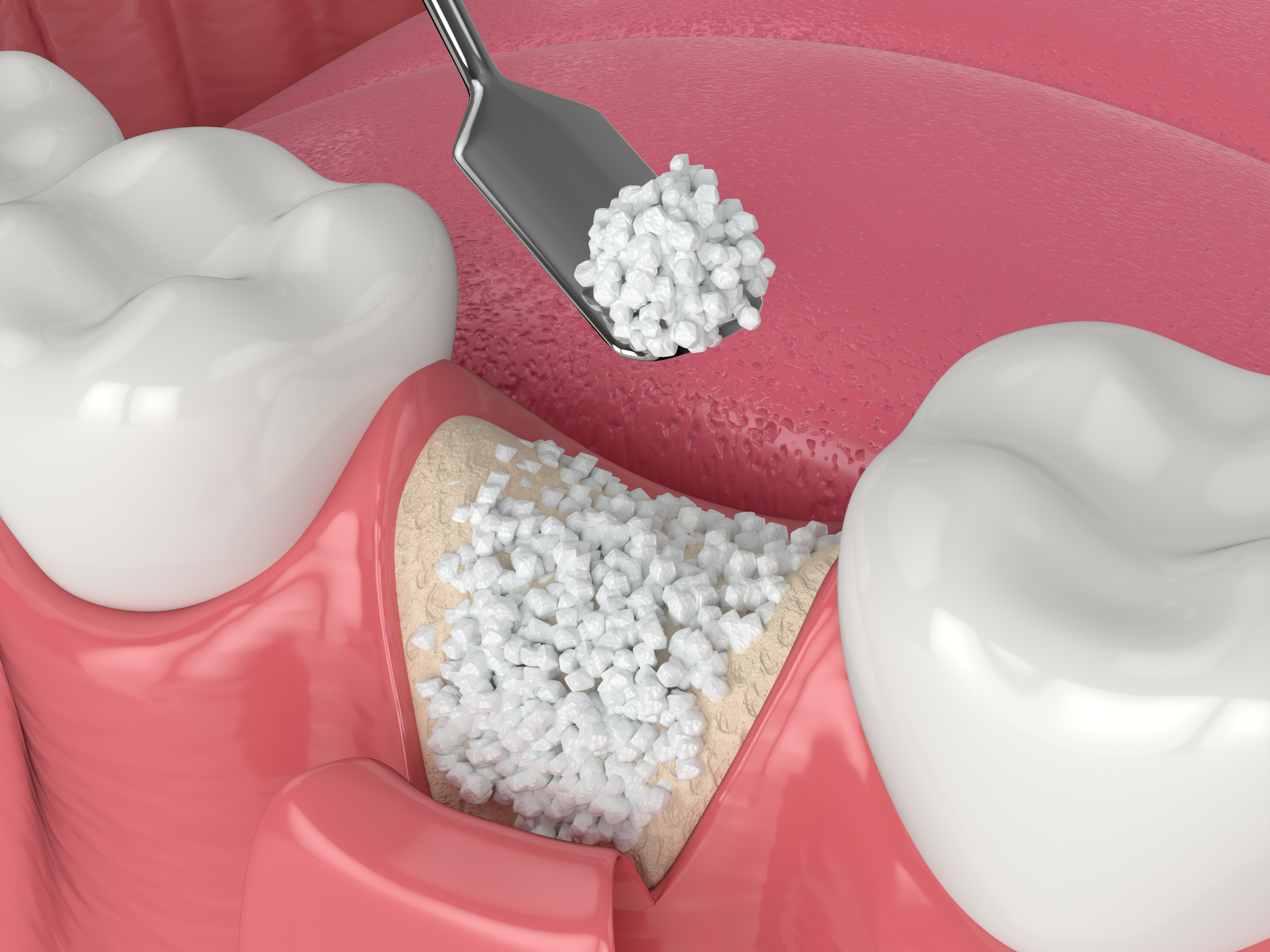Bone Grafts Specialist
Louis C. Franzetti, DDS
Dentist & Periodontist located in Manhattan, New York, NY
Dr. Franzetti has significant experience in bone graft procedures designed to help patients from Manhattan, NY, replace and strengthen jaw bone loss due to disease or trauma so they can enjoy improved functionality and aesthetics.
Bone Grafts Q & A
What is a Bone Graft?
A dental bone graft is a material used to increase bone volume and density in your jaw in areas where bone loss has occurred.
The bone graft materials are:
- Autogenous- taken from your own body
- Allograft - purchased from a human tissue bank
- Xenograft - purchase from an animal tissue bank
- Alloplasts - synthetic Bone graft material

Main types of bone graft
Socket preservation is also called ridge preservation. This type of graft is placed in the socket immediately after tooth extraction. It fills the void left behind by the missing tooth and prevents the sides of the socket from caving in.
Periodontal bone graft. Infection from gum disease can erode the bone that supports the teeth. This can cause the teeth to become loose. A periodontal bone graft is placed around an existing tooth to provide additional support and reduce mobility.
Ridge Augmentation: If your teeth have been missing for a while, the supporting jawbone may be thinner than it was before. Ridge augmentation increases the width and volume of the jawbone so it can provide a stable foundation for implants or other restorative options.
Sinus Lift: The maxillary sinuses sit just above your upper back teeth. If the upper back teeth are missing, the sinuses can drop down and invade the space once occupied by the teeth roots. In this scenario, you wouldn’t want to place implants because they would penetrate the sinus membrane. To address this problem, your periodontist or oral surgeon can perform a sinus bone graft (sinus lift surgery). This procedure raises the sinus back to its proper position. A dental bone graft is then placed underneath the sinus, creating a solid foundation for dental implants later on.
Why do I need a bone graft?
A patient who requires a bone graft (regeneration) has a missing tooth or teeth. As a result of tooth loss, the bone may have shrunk rendering insufficient volume and density to support the implant placement.
Dental bone grafts can increase your eligibility for dental implants and other restorative treatments. This procedure restores your jaw to its original form following trauma, tooth loss, or periodontal / gum disease.
What happens before dental bone graft placement?
Dr. Franzetti will perform an oral examination to check the health of your teeth, gums, and jaw. Dental Xrays or CBCT scans will be taken to determine the extent of your bone loss. Next, he will discuss your treatment options and create a personalized treatment plan to meet your needs.
What happens during dental bone graft surgery?
First, Dr. Franzetti will numb the area with a local anesthetic. Secondly, he will make a small incision in your gums. Gum tissue is reflected slightly so that the bone is visible. Next, the area will be cleaned and disinfected. Once all the infection is removed Dr. Franzetti adds bone grafting material to repair the defect.
In many cases, the bone graft is covered with a Guided Tissue Regeneration membrane for additional protection. Finally, the gum tissue is repositioned, and the incision is closed with stitches.
Typically, placement of a bone graft does not require being put to sleep; it can be done easily with local anesthesia. We offer sedation for your comfort, including nitrous oxide and oral sedation. If your case is very complicated, general anesthesia may be recommended.
What are the dental bone graft healing stages?
As mentioned above, recovery times can vary significantly for each person. Once the bone graft is placed, Dr. Franzetti will monitor your healing. If you’re anticipating dental implant surgery, he will advise when your new bone is strong enough to support the implant.
If you think you have bone deterioration, periodontal surgery can restore your oral health, function, and overall quality of life.
Contact our office at the above number


